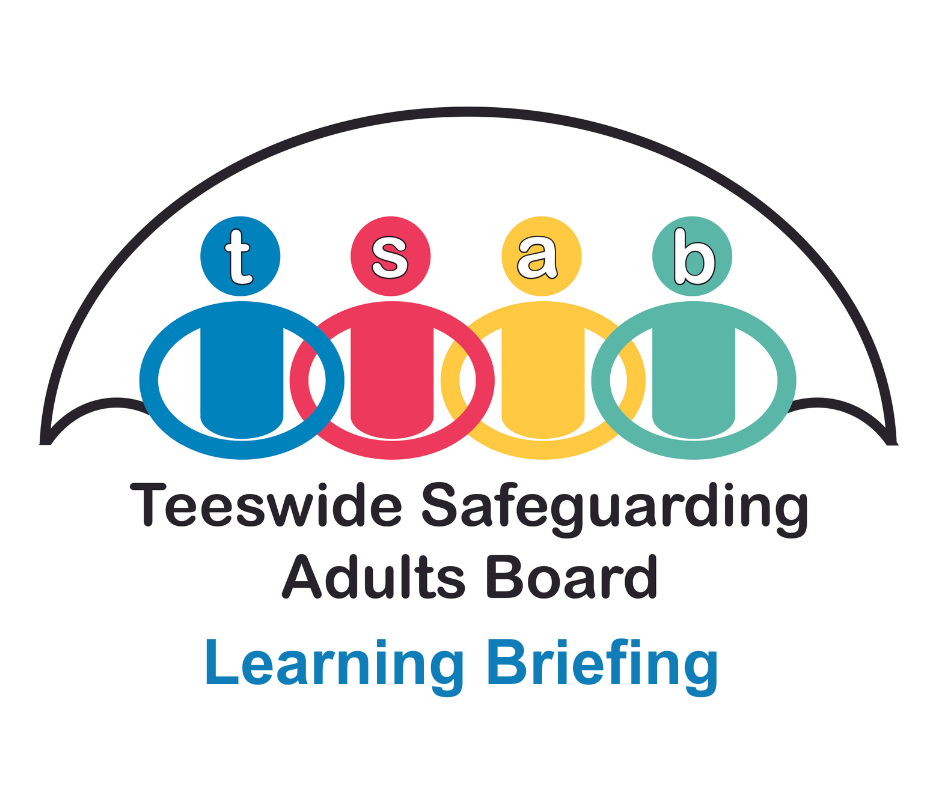
What were the circumstances that led to a Safeguarding Adult Review?
- Susan was a 58-year-old female of white British origin.
- Susan had a stroke when she was 37 years old leaving her with physical disabilities and communication difficulties (right sided paralysis, left sided weakness and expressive dysphagia). Susan was a wheelchair user who was supported by her mother and other family members including her son.
- Susan’s son had a diagnosed psychotic illness that was well managed when he took his medication. Susan’s mother was also a huge support to Susan’s son, ensuring he took his medication and attended appointments.
- Susan’s son became mentally unwell following the death of his grandmother
- Susan’s son seriously assaulted her causing significant facial injuries. Susan’s son was arrested; it was realised that he was suffering from psychosis.
- The son was assessed and detained under the Mental Health Act.
- The case was referred for consideration of a Safeguarding Adult Review in respect of the physical abuse Susan suffered.
- Susan died 18 days later in hospital from unrelated physical health causes.
- Susan had not come to the attention of services previously; her son had only been known to Adult Mental Health Services.
Areas that the review looked at were:
- Impact of mental illness on Susan and Family
- Being professionally curious
Effective/Good Practice
- Professionals responded immediately to the needs of Susan post incident, they were mindful of the shock and raw emotions of the incident and allowed Susan to take the lead as this is what she wanted.
- The Mental Health Trust reviewed instantly the issues that the incident raised for them and put together an action plan for change.
- The GP practice knew the family well.
- The social landlord responded to the need for repairs of a stair lift.
- The Ambulance Service arranged to take Susan and her son in different ambulances and to different hospitals post incident.
- MARAC and Safeguarding referrals were made appropriately.
Learning
- Recognition of increased risk for those with disabilities who lose their longstanding care arrangements should ensure that assessments are undertaken in a timely manner.
- Signposting to appropriate services is an important function of the Adult Social Care Front Door.
- Understanding of the nature of mental health issues is important to understand if there is any risk.
- On receipt of concerns expressed by family, it is important to triangulate that information with professionals who may have more details.
- Ensuring that safeguarding concerns are shared appropriately and flagged on systems where possible ensures that future risks may be assessed more readily and accurately.
- Being professionally curious is of utmost importance in order to understand below surface issues.
- Understanding declining of support services is important to identify risk factors.
What should you do/think about?
 1. Professional Curiosity
1. Professional Curiosity
How professionally curious are you? What are the barriers in your work to being curious? How can you overcome these? Have you registered for any relevant training? Have you read TSAB’s Professional Curiosity Briefing?
 2. Triage of Assessments
2. Triage of Assessments
Does your team/service have telephone triage systems that assess risk in the process of referral management? What systems do you have in place to ensure that those with disabilities and communication issues are prioritised to ensure that the risk assessed is accurately based on the current need of the person? What can you do?
 3. Flagging of previous Safeguarding
3. Flagging of previous Safeguarding
How do you add flags for safeguarding to your records in order that cumulative risk is instantly visible? Can you flag your system where the criteria for Section 42 enquiry is met but does not progress, recording reasons? How can you find out?
 4. General Learning Briefing
4. General Learning Briefing
Are you able to share this learning briefing with others? Discuss in team meetings and supervision. What issues does it raise for you?
Version: 1
Date Approved: 09/10/24